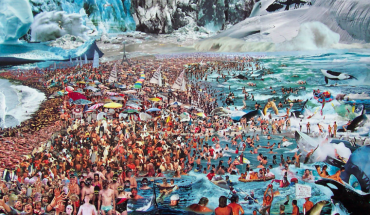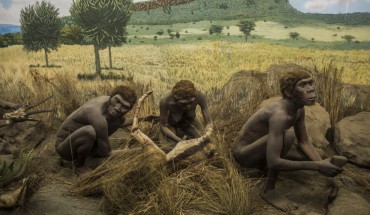By: Seth Shostak
OK, quick: Name a few important things that happened in the 11th century.
If you’re not tenured in medieval studies, that may be tough, although several modestly notable events took place in those hundred years — for example, the Battle of Hastings and the launch of the Crusades. When we look back a millennium, even the highest parapets of history become hard to discern. Nonetheless, those long-ago happenings dramatically altered the future.
But what about the 21st century? What will your kids and grandkids do that will still be important a thousand years from now?
Let me suggest that they may trump every previous generation. They may go beyond simply changing society, and possibly usher in the last act for Homo sapiens.
That may strike you as a less-than-sunny prospect, but only because you’re missing the big picture. I’m not talking about the various self-destructive threats of the moment — the ones that fill the papers and spark pontification on the nightly news. Yes, both terrorism and climate change are serious matters, but the former is manageable and frankly, so is the latter. Alleviating environmental catastrophe requires modifications of behavior. Hard, sure, but we’re not talking about violating physics.
No, the three big things that I believe will take place in the 21st century are more profound, and not necessarily bad.
To begin with, we’re finally going to understand biology at a molecular level. DNA’s double helix was discovered a mere six decades ago, and now — for hardly more than a kilobuck — you can sequence the genome of your yorkie or yourself.
The relentless interplay of science and technology ensures that genomic knowledge will spawn a growing number of applications. Curing disease is one of these, and it’s obviously desirable. But our efforts won’t be limited to merely fixing ourselves; we’ll also opt for improvement. You may hesitate to endorse designer babies, but hot-rodding our children is as much on the horizon as the morning sun.
Number two on my list of major 21st century developments is expanding into nearby space. We need more resources — both acreage and raw materials — unless we’re happy to condemn our descendants to a limited lifestyle and unlimited war. You may worry about running out of oil, but that’s not the resource that should really make you antsy. We’re going to eat through the easily recoverable reserves of stuff like copper, zinc, and the platinum group metals in a matter of decades.
We can find more of these elements in asteroids, and already several companies are planning to do so. But nearby space could also provide unlimited real estate for siting the condos of the future. Everyone expects our progeny to establish colonies on the moon or Mars, but the better deal is to build huge, orbiting habitats in which you can live without a spacesuit. Think of scaling up the International Space Station a few thousand times. We can put unlimited numbers of people in such engineered environments, and sometime in this century we’ll start doing that. The days of being confined to the bassinette of our birth are coming to an end.
The third thing you can expect before the year 2100 is the development of generalized artificial intelligence (GAI). In other words, machines that don’t just play games like chess or Jeopardy, but can do the thinking required for any white-collar job, including all the ones at the top. And such machines won’t necessarily be large. A synapse in your brain is a few thousand nanometers in size. A transistor on a chip is hundreds of times smaller. The hardware necessary for human-level smarts — even today — could fit in an iPad.
These are developments that — over the long term — will dwarf such quotidian concerns as politics, war, or economics.
But they will also change us.
Putting large numbers of people in off-Earth colonies will inevitably lead to a kind of speciation. After all, their physical environment is somewhat different than Earth, and history suggests that their social environment will also be special. A thousand years from now, the inhabitants of a martian colony may not be so similar to those still living on Earth.
Re-engineering our children will transform our species even faster. We can eventually produce offspring that are as different from us as dogs are from gray wolves. The haphazard, bottom-up alterations to our species occasioned by Darwinian evolution will yield to the directed improvements of future engineers.
But the development of GAI will surely be the most dramatic driver of change, because it is less a matter of improving our descendants than replacing them with our engineered successors. Perhaps we can promulgate our culture and ourselves by putting chips in our brains or simply uploading our brains to the machines. But you can be sure that the result will not be Homo sapiens as we’ve known him for 50 thousand years.
These are changes that don’t just shape our future. They knead it into something inconceivably different. And sure, you may quibble about whether everything I’ve described is going to take place this century, but do you really think it won’t happen in the coming thousand years?
The people of the 11th century might be disconcerted by today’s technology, but they would have no trouble recognizing us. However, it’s unlikely we would recognize humans a millennium hence.
We live in times that are more than merely interesting.




